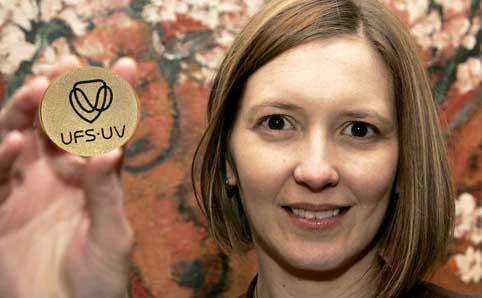Latest News Archive
Please select Category, Year, and then Month to display items
05 June 2018
Photo Supplied
 Archaeological excavations in the Wonderwerk Cave, north of Kuruman in the Northern Cape.
Archaeological excavations in the Wonderwerk Cave, north of Kuruman in the Northern Cape.
Research fellow Dr Lloyd Rossouw from the Department of Plant Sciences at the University of the Free State (UFS) recently published an article in the Nature Ecology and Evolution journal with Dr Michaela Ecker from the University of Toronto as lead author, and Dr James Brink, research fellow at the UFS Centre for Environmental Management. The findings described in “The palaeoecological context of the Oldowan-Acheulean in southern Africa” provides the first extensive paleoenvironmental sequence for the interior of southern Africa by applying a combination of methods for environmental reconstruction at Wonderwerk Cave, which have yielded multiple evidence of early human occupation dating back almost two million years ago.
Where water once was
The Wonderwerk Cave is found north of the Kuruman hills (situated in Northern Cape) a 140m long tube with a low ceiling. The surroundings are harsh. Semi-arid conditions allow for the survival of only hardy bushes, trees, and grasses. But during the Early Pleistocene, stepping out of the Wonderwerk Cave you would have been greeted by a completely different site, the researchers found. Using carbon and oxygen stable isotope analysis on the teeth of herbivores (Dr Ecker), fossil faunal abundance (Dr Brink), as well as the analysis of microscopic plant silica remains (phytoliths) excavated from fossil soils inside the cave (Dr Rossouw), the results show that ancient environments in the central interior of southern Africa were significantly wetter and housed a plant community unlike any other in the modern African savanna.
What difference does it make?
While East African research shows increasing aridity and the spread of summer-rainfall grasslands more than a million years ago, the results from this study indicate an interesting twist. During the same period, shifts in rainfall seasonality allowed for alternating summer and winter-rainfall grass occurrences coupled with prolonged wetlands, that remained major components of Early Pleistocene (more or less the period between one and two million years ago) environments in the central interior of southern Africa. That means our human ancestors were also living and evolving in environments other than the generally accepted open, arid grassland model.
Computer Science lecturer receives Vice-Chancellor’s Award for teaching excellence
2011-11-11
 |
|
Dr. Liezel Nel from our Department of Computer Science.
Annually, many lecturers receive awards and recognition for their contribution to the UFS’s plans to accomplish outstanding academic performance.
Photo: Johan Roux
|
This year, the UFS presented its fourth awards function for outstanding learning and teaching.
At the awards function this past week, lecturers were rewarded for their outstanding teaching inputs at the UFS.
Dr Liezel Nel from our Department of Computer Science and Informatics was awarded the Vice-Chancellor’s award for her outstanding contribution to teaching and learning at the UFS.
The award, together with other awards presented to lecturers for outstanding teaching and learning, was instituted to encourage innovative teaching methods in departments in order to achieve outstanding academic results.
The Vice-Chancellor’s award is awarded to the lecturer who not only displays good leadership, but has also published research during the preceding year, with excellent knowledge and teaching skills in his/her discipline.
Dr Nel said she had realised over the past years that educators increasingly had more teaching resources at their disposal than before, which could be utilised to improve the teaching and learning experience of students.
“Therefore, I constantly renew my study material and the way in which I present the material. Currently I use a combined method, which includes electronic presentation by means of Blackboard, personal interaction and sessions, which enable the student to take ownership of the module.”